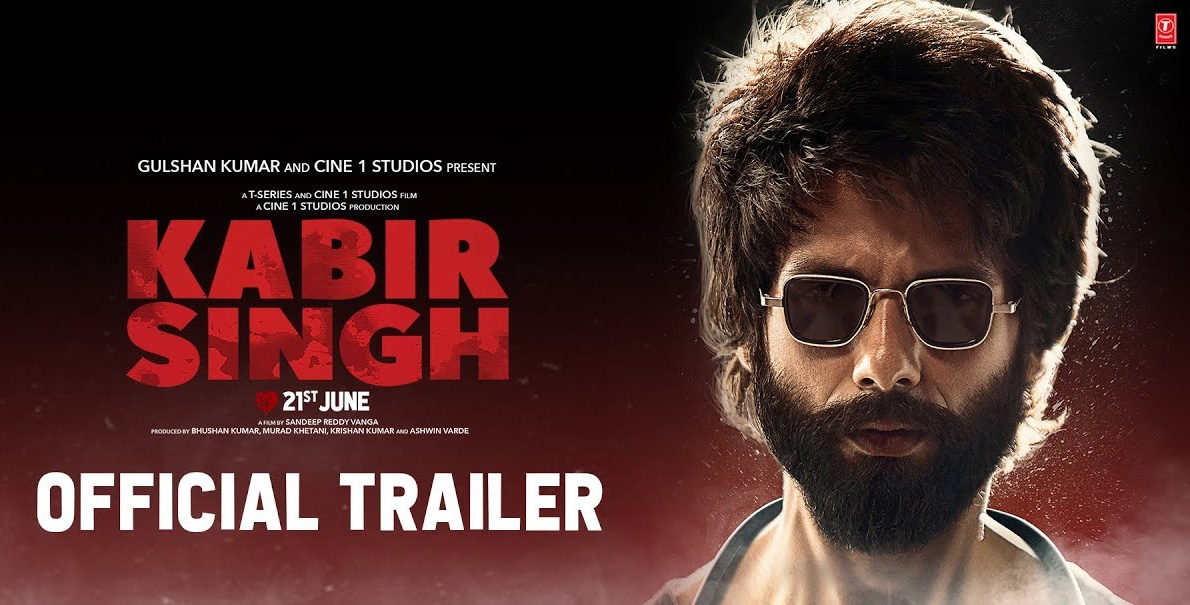In no society does media exist in a vacuum; it is an active reflection of social structures and norms, of pervasive and dominant ideas, and of the psyche of the populace. In India especially, where Bollywood has penetrated every household, where evenings for many families are defined by watching sappy, over the top, Indian dramas, and the craze of Twitter has enveloped politicians, actors, and commoners alike, the role of media grows ever more pertinent. Recent flurry surrounding the latest Bollywood film, Kabir Singh, is an accurate reflection of how far this country has left to go, till women can consider themselves equal, respected, and safe.
Recent flurry surrounding the latest Bollywood film, Kabir Singh, is an accurate reflection of how far this country has left to go, till women can consider themselves equal, respected, and safe.
This article isn’t going to review the debate surrounding Kabir Singh, Shahid Kapoor’s problematic, and yet emblematic character of what is wrong with patriarchy, the male gaze, and hyper-sexualization of women. Rather, I want to talk about the responsibility of the film fraternity, at large, when it comes to writing, directing and acting in films. Kabir Singh is a Hindi remake of the Telugu film, ‘Arjun Reddy,’ released in 2017. It was bad enough that the director made this film once, but to direct it a second time, this time to a wider audience, astonishes me. The film has been widely criticized for glorifying violence against women, romanticizing a male lead, who is abusive in multiple ways, and idolizing the submissiveness and meekness of its female lead. And if reading this doesn’t make you uncomfortable, or make you see what is wrong with the film, then you are too far apart from any feminist movement to even have a conversation.
The film has been widely criticized for glorifying violence against women, romanticizing a male lead, who is abusive in multiple ways, and idolizing the submissiveness and meekness of its female lead. And if reading this doesn’t make you uncomfortable, or make you see what is wrong with the film, then you are too far apart from any feminist movement to even have a conversation.
This film comes in the day and age of the #MeToo movement, of the most number of female parliamentarians being elected to the national legislature, and of women fighting for equal pay, equal access to education, healthcare and politics. While women march tirelessly, screaming to be heard, fighting for equality, which should rightfully been given to them, one of the most popular film industries in the world produces a film that sets women back by decades. As a women I ask, where is the directorial responsibility in producing a heinous film like Kabir Singh? People have defended the film, citing artistic license, and the classic argument- ‘it’s just a film and just a character, it’s not real.’ The same industry that aims to inspire people with its renditions of biopics of famous personalities, that claims to expose uncomfortable truths about certain industries or professions through the artistic gaze, then claims that a film like Kabir Singh should be viewed as simply that. A film, with no insight into the mind of a crazed man. A film, which does not reflect the reality of its society, where women continue to be subjugated, where rape is romanticized, where violence is accepted. I don’t just find that hard to accept, but I also see Bollywood undermining its own influence in the face of criticism, just because it is convenient for it to do so.
As a women I ask, where is the directorial responsibility in producing a heinous film like Kabir Singh?
Even if directors come up with problematic ideas for films, I then ask, where is the responsibility on part of the actors? These actors are famous names that many people idolize and look up to. When they take up roles that are abusive and manipulative, and are portrayed in the rosiest light possible, they are shirking their responsibilities as individuals in positions of prominence and power. But even if directors and actors both fail to see the repercussions of their actions, where does the responsibility of the Censor Board of India lie? The Censor Board has been quick to ban films, delay releases or censor films that are deemed offensive to minorities (or often certain authorities). But what happens to their power, when the biggest minority of the country- women- is threatened by the release of such a film? I’m sure the film isn’t obscure enough that our Censor Board would fail to see the obscenity that lies in every aspect of it. So, are they simply turning a blind eye, because there is no alternative motive towards censoring a film like Kabir Singh?
The Censor Board has been quick to ban films, delay releases or censor films that are deemed offensive to minorities (or often certain authorities). But what happens to their power, when the biggest minority of the country- women- is threatened by the release of such a film?
Lastly, where is the responsibility of our audience? The onus of knowing when to watch, and when to boycott a film, is on us. Films cannot succeed if they aren’t received well by an audience. But instead of choosing not to see Kabir Singh, we’ve read reports of men hooting and cheering for the protagonist as he violently slaps the female lead in a scene. It is possible to create films that reflect reality. It is possible to exercise what defenders of Kabir Singh want to call ‘free speech.’ It is possible to create a film like Kabir Singh, that portrays him just as is, as flawed as he is, but in the light of someone who is monstrous and needs help. Not as a glorified, romanticized, idolized man, who can go scot-free for all his actions. In the age where we hail women like Ruth Bader Ginsburg, Nancy Pelosi, Ilhan Omar, Mimi Chakravarty, and Nusrat Jahan, as being trailblazers and bastions of feminist power, let’s use media with responsibility to further the feminist cause, not regress it.
It is possible to create films that reflect reality. It is possible to exercise what defenders of Kabir Singh want to call ‘free speech.’ It is possible to create a film like Kabir Singh, that portrays him just as is, as flawed as he is, but in the light of someone who is monstrous and needs help.





